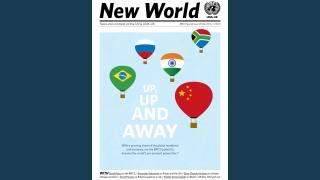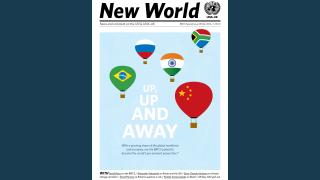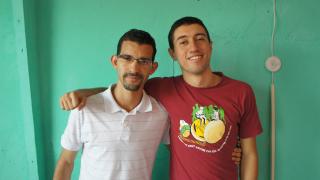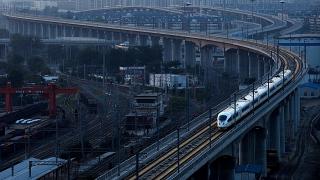
In theory, the BRICS countries should have a decisive impact on diplomacy at the United Nations. Their ranks include two veto-wielding permanent Security Council members and three powerful states who are regularly elected to the Council’s rotating seats. In the General Assembly too, the aggregated economic and diplomatic weight of these states should make them a formidable bloc.
Russia may no longer be a superpower, but it remains a geopolitical and economic force with vast energy resources. China is an emerging economic superpower with a growing set of interests throughout the world. India is growing nearly as fast and has historically been a leader of the Non- Aligned Movement, which includes nearly two-thirds of the total UN membership. Brazil is Latin America’s leading economy and a growing world diplomatic presence. South Africa, the newest member of the group, is Africa’s leading power and a critical player in regional diplomacy. Through regular BRICS summits, these states have developed mechanisms for sharing their concerns and coordinating diplomatic and economic strategy.
In practice, however, the BRICS have only infrequently become a decisive factor in UN diplomacy. The acronym has become ubiquitous as a shorthand for the phenomenon of emerging, non-Western powers, but it often suggests a greater alignment of interests than exists. The BRICS are geographically dispersed and ideologically diverse. In many respects, they lack a common set of economic interests or a coherent geopolitical vision. The General Assembly vote in August to condemn the Syrian regime’s abuses highlighted the limits of BRICS diplomacy. Russia and China opposed the resolution, while Brazil and South Africa supported it. India abstained.
To the extent the BRICS share a vision, it is a reactive one. They are united in a suspicion of Western interventionism and a conviction that the world’s governing architecture is tilted in the West’s favor. That shared concern was on display during the Libya operation last year.
Russia, China, India and Brazil abstained on the vote authorising military force to protect civilians; only South Africa voted in favor. As the military operation developed, all BRICS members criticised NATO for exceeding the Security Council’s narrow authorisation and they signaled that they would be reluctant to authorise any further such operations. Brazil even advanced a corollary to the ‘responsibility to protect’ doctrine: responsibility while protecting (see New World, Autumn 2012).
These concerns are widely shared in the UN membership, and the BRICS could potentially serve as powerful advocates for a reformed international system. In the context of UN diplomacy, however, they have a common disadvantage. They are all large states operating in an organisation numerically dominated by small and midsize states. The BRICS may see themselves agitating for a more equitable international architecture, but many UN members view them more cynically: as major powers seeking to acquire the (unfair) privileges that other powers have secured. For many UN members, the ambitions of Brazil, India and South Africa for permanent Security Council seats are evidence not of a reformist impulse, but of a desire to join the big-power club.
Taken together, the limited set of common interests and the suspicion that the emerging-power bloc creates has limited the BRICS impact at the United Nations. The emergence of the BRICS is an important sign that the world has become more multipolar. That multipolarity will have important implications for UN diplomacy, whether or not the BRICS ever emerge as a diplomatic force.
David Bosco is Assistant Professor of International Politics at American University, Washington DC, and Contributing Editor at Foreign Policy magazine. He is author of Five to Rule Them All (Oxford University Press, 2009), a history of the UN Security Council









